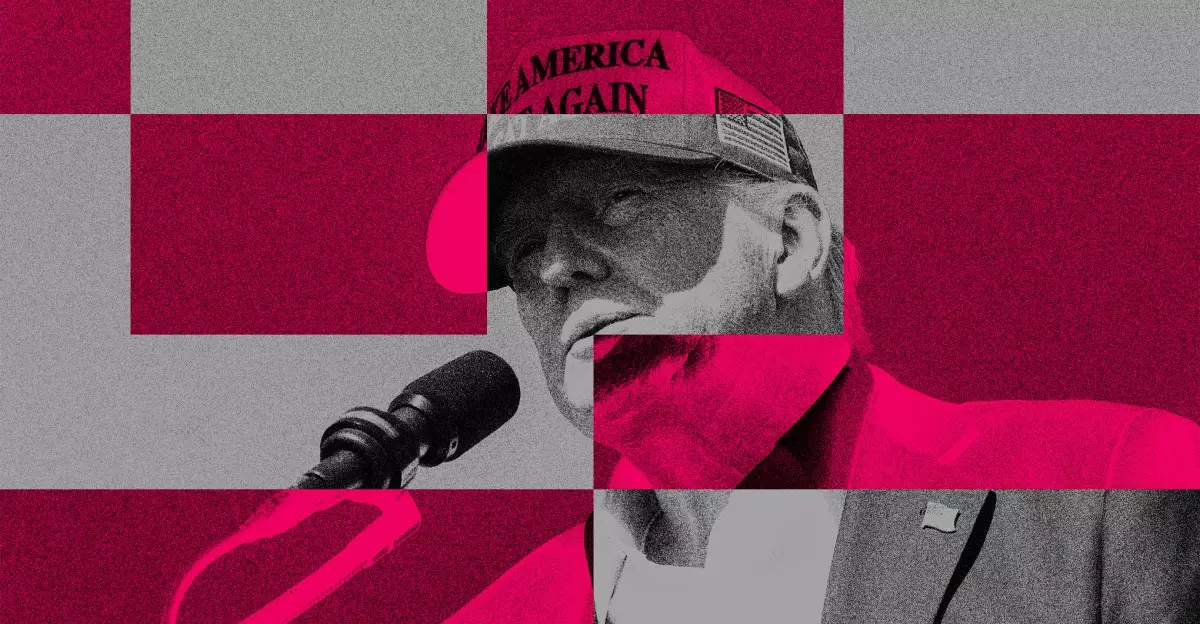In an era where social media dominance equates to political influence, the Trump administration’s decision to launch a new TikTok account signals more than just a digital strategy—it reflects a complex interplay of politics, technology, and international diplomacy. Despite the ongoing legal quagmire regarding TikTok’s future in the United States, the administration has taken a provocative step by creating an official White House TikTok account. This move, seemingly contradictory to the looming ban, underscores a deeper calculation: the recognition that TikTok is an indomitable platform with unmatched reach and cultural relevance.
Rather than retreating or complying with the legal pressures, the administration’s engagement with TikTok signifies a nuanced approach. It’s as if they’re asserting that controlling the narrative on the platform, even without a formal deal, can serve strategic interests. By publishing content that celebrates governmental achievements, the White House attempts to maintain visibility and influence among younger voters and digital natives who increasingly consume news through social media. This juxtaposition—banning the platform at the legislative level while actively using it—illustrates a paradoxical attempt to wield influence in a space it ostensibly seeks to diminish.
Political Calculations Behind the Digital Mask
The contradiction becomes even more apparent considering Donald Trump’s historical stance on TikTok. Initially vocal about banning the app during his presidential campaign, Trump’s position softened once the platform’s popularity among his supporters became undeniable. His re-embrace of the app, coupled with the launch of a campaign TikTok account, hints at a strategic recalibration aimed at sustaining voter engagement and warding off Democratic digital dominance. The fact that Trump’s campaign effortlessly outperformed his opponents’ on TikTok exemplifies how social media, especially TikTok, isn’t just entertainment—it’s a battleground for political influence.
This tactical shift reveals an understanding that in today’s politically charged landscape, violence of rhetoric is often less effective than viral content that resonates with the digital age. Trump’s ability to generate attention in that space is not incidental but a deliberate attempt to dominate the narrative where it truly matters—on the platforms shaping public discourse. The administration’s foray into TikTok, despite unresolved legal issues, exposes their prioritization of influence over legality, timeframes, or diplomatic protocol.
The Illusion of Control in a Realm of Uncertainty
The longevity and effectiveness of the Trump administration’s TikTok strategy remain highly questionable. While creating official accounts and publishing patriotic content may project an image of control, it ultimately highlights the limitations of authority in an era of unrestrained social media dynamism. The legal framework surrounding TikTok, including the potential forced sale of ByteDance’s stakes, remains unresolved, with deadlines continuously pushed back. This liminal state offers a unique window for political actors to leverage the platform’s reach without needing to settle the broader conflicts with China or tech giants.
However, this also raises questions about genuine commitment versus token gestures. Is the White House truly engaged in shaping policy, or are they merely riding the wave of TikTok’s popularity for political gain? The equivocation—appearing to ban the platform while simultaneously cultivating a presence—is revealing of a government unsure whether to fully embrace or discard the platform. Such ambiguity can inadvertently weaken their stance, portraying an organization caught between aspirations of digital sovereignty and pragmatic political realities.
The Broader Implications of Power in the Digital Age
Ultimately, the Trump administration’s maneuvering on TikTok is emblematic of larger shifts in political power and influence. Social media no longer simply amplifies messages; it becomes a contested space where the boundaries between governance, propaganda, and entertainment blur. The decision to maintain a government account on TikTok, despite legal and diplomatic complications, underscores an evolving understanding that control over digital narratives can be just as important—if not more—than traditional forms of political authority.
This calculated gamble reveals a recognition that in the digital era, influence is often measured by virality and engagement rather than formal decree. The White House’s actions suggest an acknowledgment that if they cannot fully control the platform through regulation or bans, then they must wield influence from within, shaping content that resonates with public sentiment and voter perceptions. Whether this strategy will pay off in the long term remains uncertain, but it unmistakably signals a new era of political engagement—one where digital savvy may be the key to maintaining relevance in an increasingly interconnected world.

